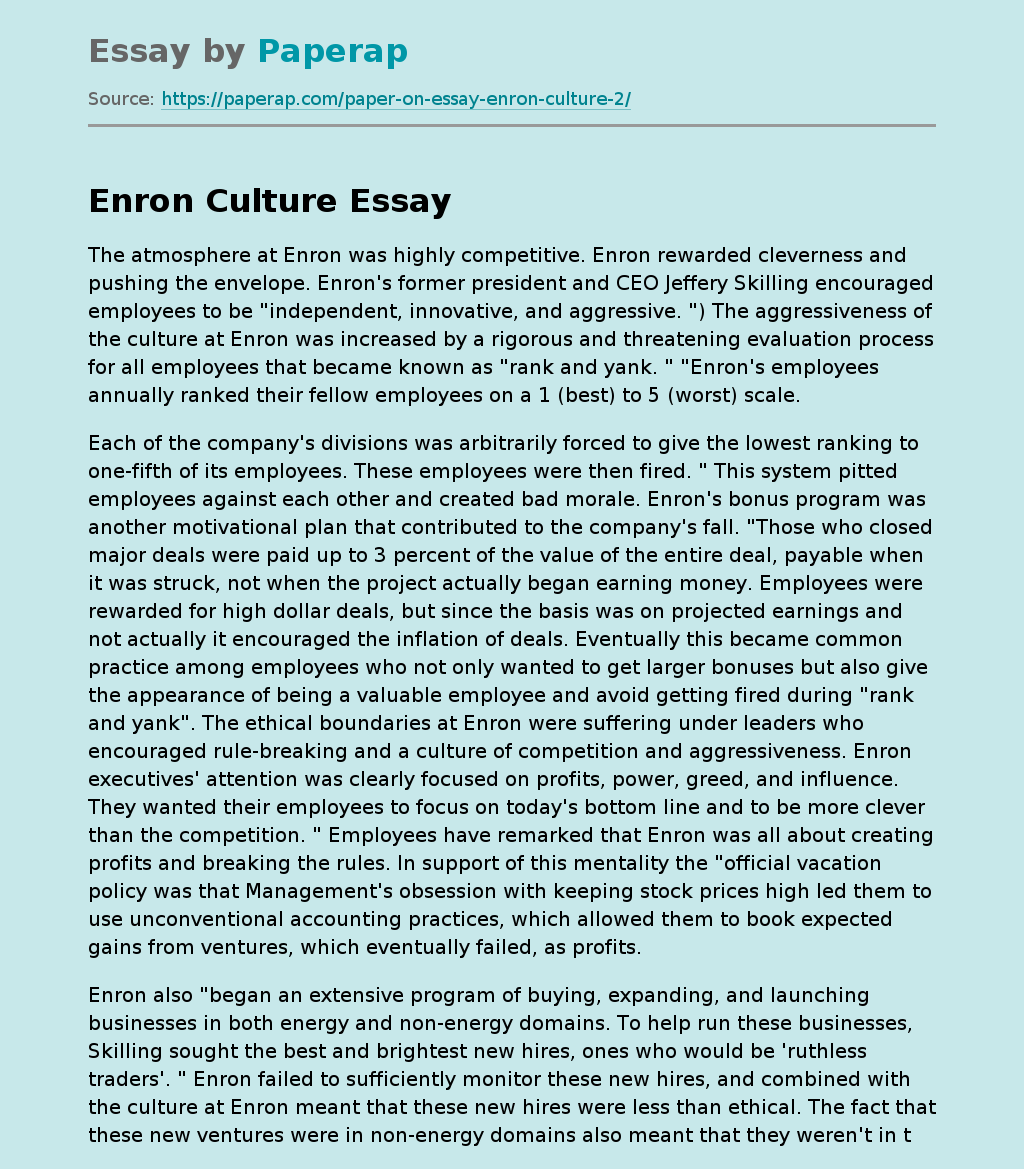Enron's Competitive Culture and Skilling's Role
The atmosphere at Enron was highly competitive. Enron rewarded cleverness and pushing the envelope. Enron’s former president and CEO Jeffery Skilling encouraged employees to be “independent, innovative, and aggressive. “) The aggressiveness of the culture at Enron was increased by a rigorous and threatening evaluation process for all employees that became known as “rank and yank. ” “Enron’s employees annually ranked their fellow employees on a 1 (best) to 5 (worst) scale.
Each of the company’s divisions was arbitrarily forced to give the lowest ranking to one-fifth of its employees.
These employees were then fired. ” This system pitted employees against each other and created bad morale. Enron’s bonus program was another motivational plan that contributed to the company’s fall. “Those who closed major deals were paid up to 3 percent of the value of the entire deal, payable when it was struck, not when the project actually began earning money. Employees were rewarded for high dollar deals, but since the basis was on projected earnings and not actually it encouraged the inflation of deals.
Eventually this became common practice among employees who not only wanted to get larger bonuses but also give the appearance of being a valuable employee and avoid getting fired during “rank and yank”. The ethical boundaries at Enron were suffering under leaders who encouraged rule-breaking and a culture of competition and aggressiveness. Enron executives’ attention was clearly focused on profits, power, greed, and influence. They wanted their employees to focus on today’s bottom line and to be more clever than the competition.
” Employees have remarked that Enron was all about creating profits and breaking the rules. In support of this mentality the “official vacation policy was that Management’s obsession with keeping stock prices high led them to use unconventional accounting practices, which allowed them to book expected gains from ventures, which eventually failed, as profits.
Enron also “began an extensive program of buying, expanding, and launching businesses in both energy and non-energy domains. To help run these businesses, Skilling sought the best and brightest new hires, ones who would be ‘ruthless traders’. ” Enron failed to sufficiently monitor these new hires, and combined with the culture at Enron meant that these new hires were less than ethical. The fact that these new ventures were in non-energy domains also meant that they weren’t in the executives’ field of expertise which made it more difficult to monitor.
Within management there was a failure to honestly deal with the problems facing the company. Instead of a developing a plan that lowered risk-taking and promoted ethics, Enron developed a Madison Avenue mentality “that anything is right if the public can be convinced that it’s right. ” Through unconventional accounting Enron was able to produce numbers that showed profits and while no one understood, very few questioned it. Employees who noticed the questionable accounting and reporting practices and “tried to blow the whistle were punished. “
Enron's Competitive Culture and Skilling's Role. (2019, Jun 20). Retrieved from https://paperap.com/paper-on-essay-enron-culture-2/

